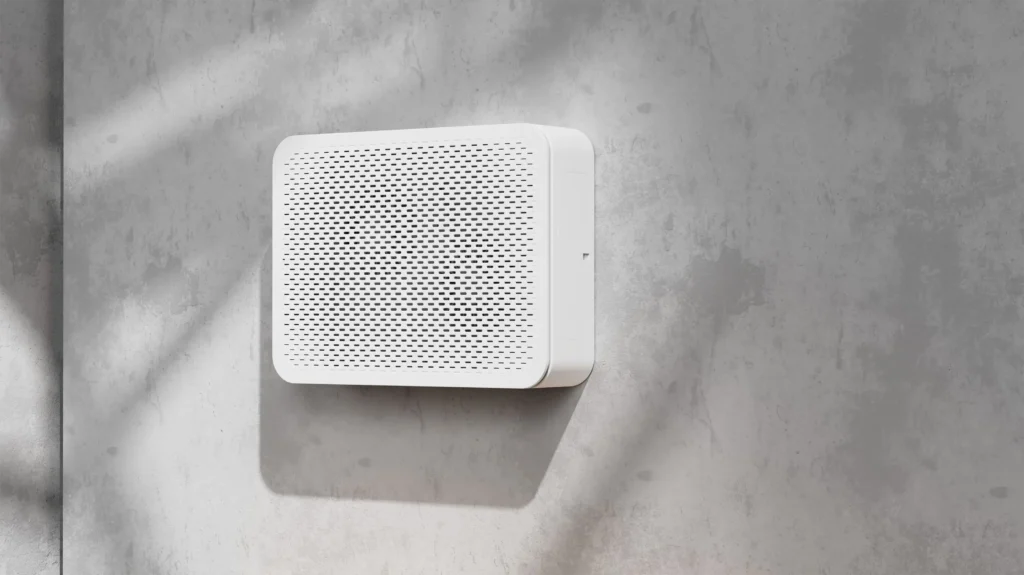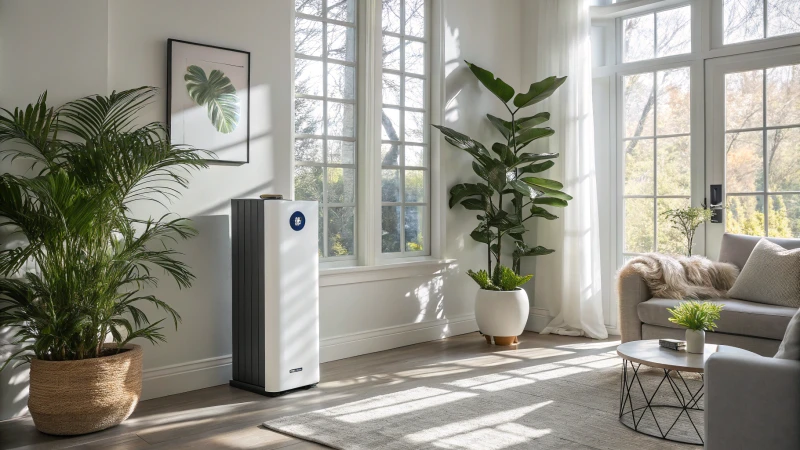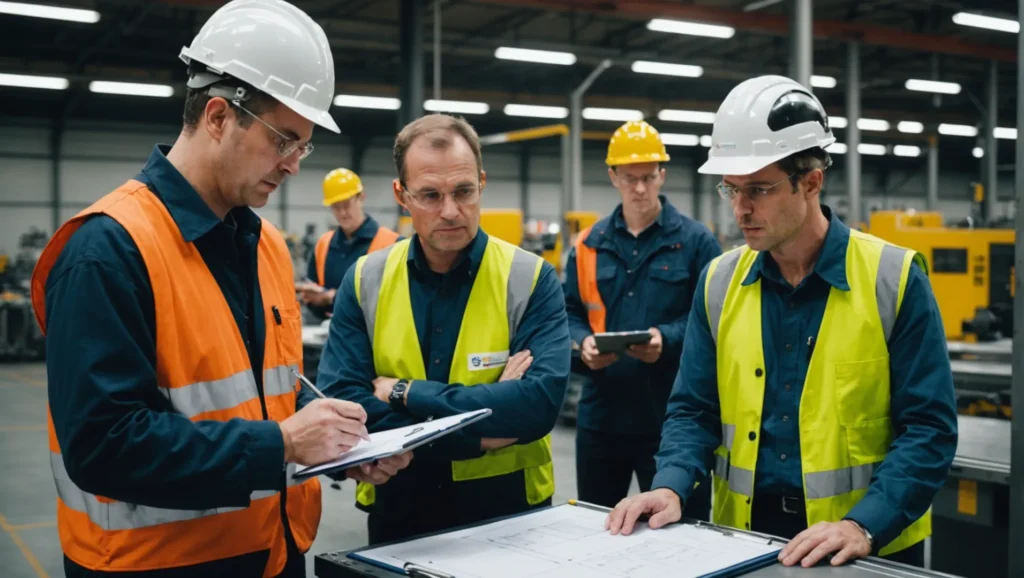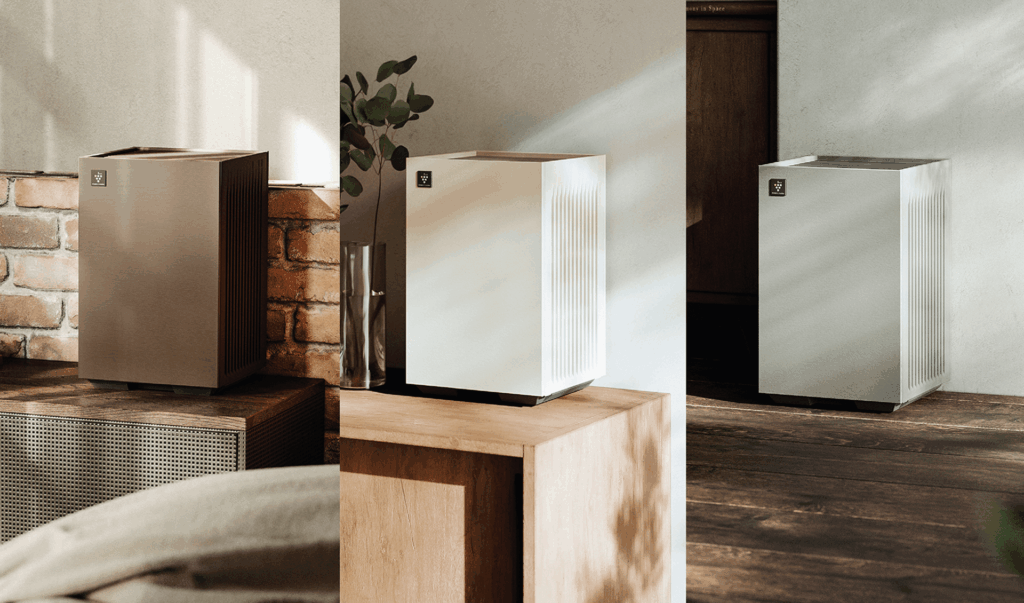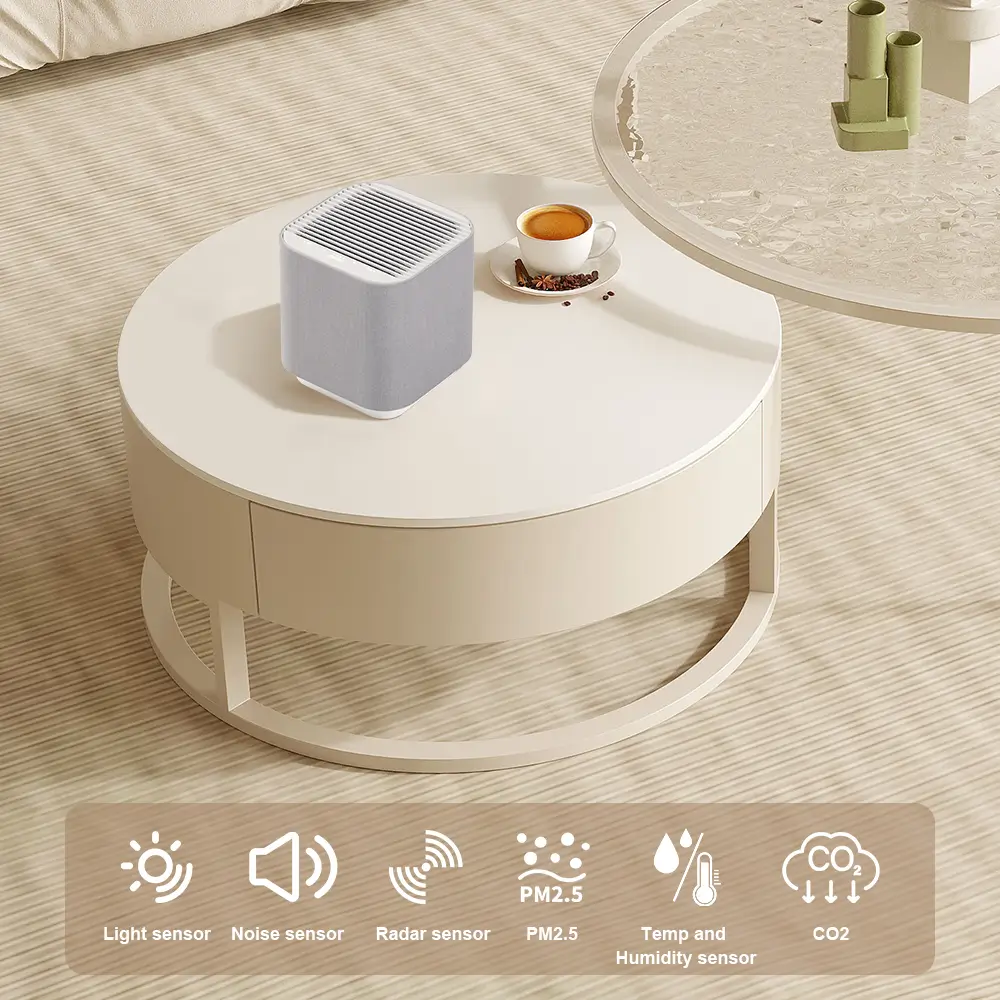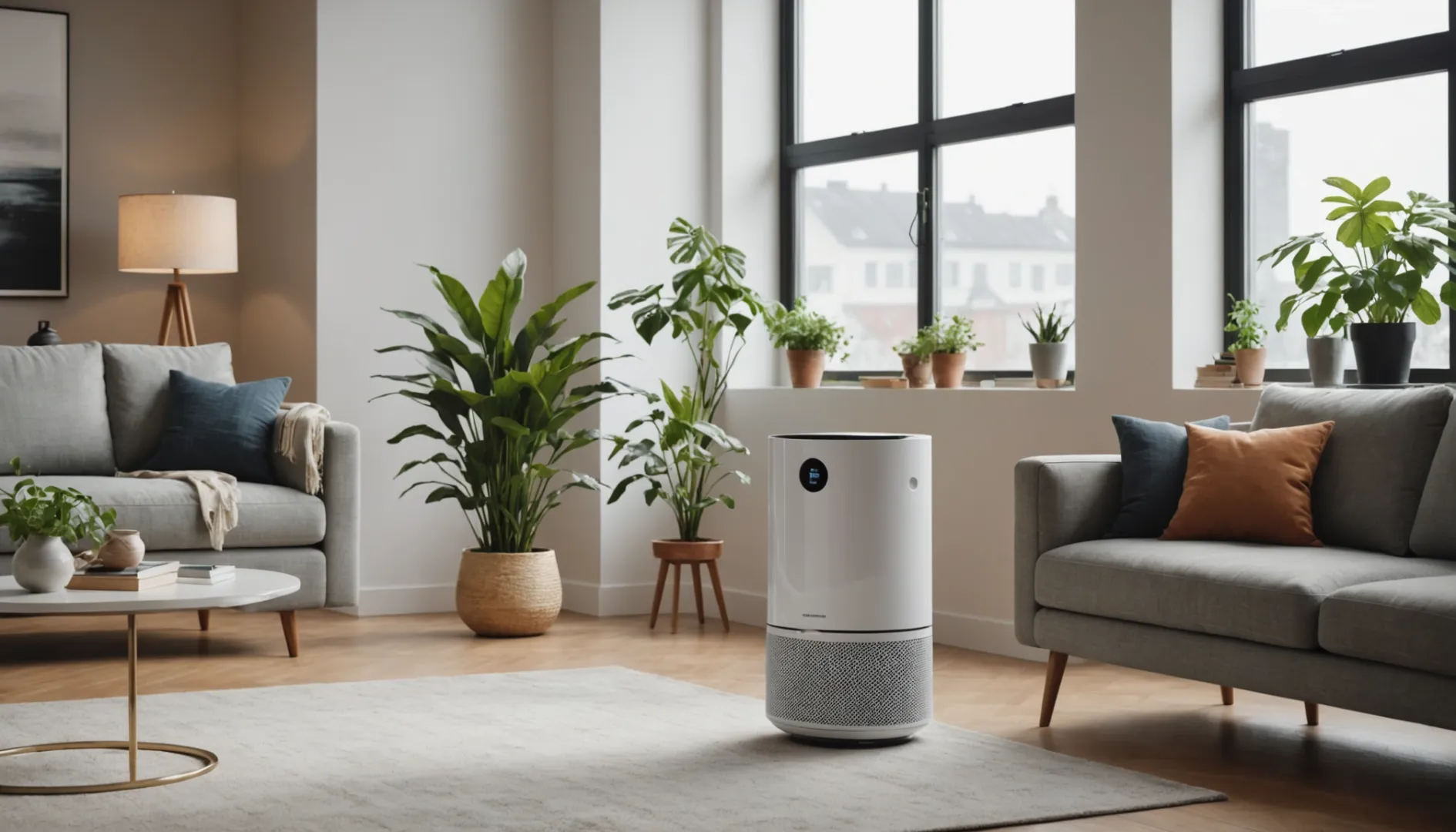
قد يبدو العثور على جهاز تنقية الهواء المثالي أمراً مربكاً، ولكن لا يجب أن يكون كذلك!
تشمل العوامل الخمسة الرئيسية التي يجب أخذها في الاعتبار عند اختيار شركة تصنيع أجهزة تنقية هواء موثوقة الخبرة في تكنولوجيا تنقية الهواء، وقدرات التخصيص، والالتزام بمعايير الجودة، والتكنولوجيا المتقدمة والابتكار، والتواصل والدعم الشفاف.
بينما يوفر فهم هذه العوامل الأساسية أساسًا متينًا، إلا أن التعمق في كل جانب من هذه العوامل يمكن أن يعزز عملية اتخاذ القرار بشكل كبير. استمر في القراءة لاكتشاف كيفية تفاعل هذه العناصر لمساعدتك في تحديد أفضل شركة مصنعة تناسب احتياجاتك.
تضمن الخبرة في تكنولوجيا تنقية الهواء جودة أفضل للمنتج.صحيح
يقدم المصنعون ذوو الخبرة أجهزة تنقية هواء عالية الجودة وفعالة مصممة خصيصاً لتلبية الاحتياجات.
كيف تؤثر الخبرة في تكنولوجيا تنقية الهواء على اختيار الشركة المصنعة؟
تُعد الخبرة في تكنولوجيا تنقية الهواء أمرًا محوريًا عند اختيار الشركة المصنعة، مما يضمن حلولاً فعالة ومبتكرة.
تؤثر الخبرة في تكنولوجيا تنقية الهواء بشكل كبير على اختيار الشركة المصنعة من خلال تحديد جودة أجهزة تنقية الهواء وكفاءتها وملاءمتها لبيئات ومتطلبات محددة.
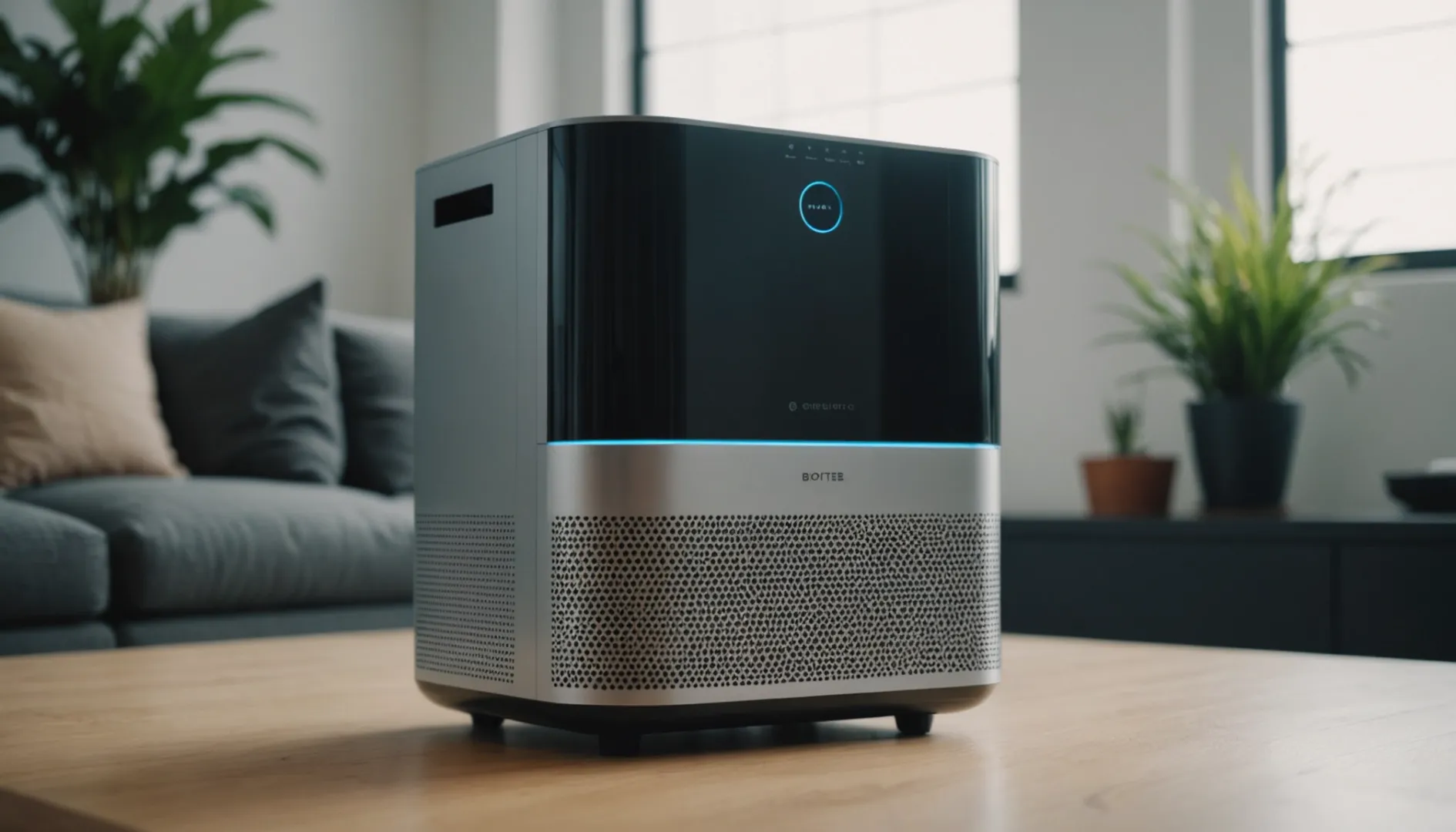
فهم تقنيات الترشيح
يمتلك المصنعون الخبراء معرفة شاملة حول تقنيات الترشيح المختلفة مثل فلاتر HEPA والكربون المنشط والكهرباء الساكنة والأشعة فوق البنفسجية-ج. لكل نوع فوائد مميزة: تقوم فلاتر HEPA بحبس الجسيمات الصغيرة حتى 0.3 ميكرون، بينما يتفوق الكربون المنشط في إزالة الروائح الكريهة. تتيح هذه المعرفة التقنية للمصنعين التوصية بالفلاتر الأنسب للاحتياجات المتنوعة، من سكني1 المساحات إلى الطبية2 المرافق.
الميزات المتقدمة وأهميتها
يمكن للمصنعين من ذوي الخبرة دمج ميزات متقدمة مثل تقنية الحد من الضوضاء والمراقبة التي تدعم إنترنت الأشياء. يُعد الحد من الضوضاء أمرًا بالغ الأهمية لأجهزة تنقية الهواء المنزلية أو المكتبية حيث يكون الصمت من ذهب. تسمح إمكانات إنترنت الأشياء للمستخدمين بمراقبة جودة الهواء والتحكم بها عن بُعد، مما يوفر الراحة وراحة البال.
تأثير أنظمة الترشيح متعددة المراحل
قد تقترح الشركة المصنعة المتمرسة أنظمة الترشيح متعددة المراحل التي تحجز مجموعة واسعة من الملوثات، بما في ذلك المركبات العضوية المتطايرة (المركبات العضوية المتطايرة). هذا النهج لا يعزز جودة الهواء فحسب، بل يطيل عمر جهاز تنقية الهواء من خلال تقليل الضغط على أي مرحلة ترشيح واحدة.
| الميزة | الأهمية |
|---|---|
| تقليل الضوضاء | ضروري للبيئات الهادئة |
| مراقبة إنترنت الأشياء | تمكين التحكم عن بُعد وتتبع البيانات |
| الترشيح متعدد المراحل | تلتقط مجموعة واسعة من الملوثات |
الخبرة في التخصيص
لا تقتصر الخبرة على فهم الفلاتر فحسب، بل تشمل أيضًا تخصيص الحلول. يمكن للمصنعين المتمرسين في مجال تنقية الهواء تخصيص المنتجات لتلبية احتياجات العملاء المحددة، مما يضمن الأداء الأمثل. على سبيل المثال، قد يقومون بتعديل آليات الترشيح لتلبية احتياجات البيئات التي تحتوي على عدد كبير من حبوب اللقاح أو الملوثات الصناعية.
ومن خلال التركيز على هذه الجوانب، فإن الخبرة في تكنولوجيا تنقية الهواء لا تؤثر فقط على اختيار الشركة المصنعة؛ بل إنها تحدد مدى نجاح اختيارك ورضاك على المدى الطويل.
تحبس فلاتر HEPA الجسيمات الصغيرة حتى 0.3 ميكرون.صحيح
تشتهر فلاتر HEPA بقدرتها على التقاط الجسيمات الصغيرة، مما يعزز جودة الهواء.
مراقبة إنترنت الأشياء غير ضرورية لأجهزة تنقية الهواء.خطأ
تسمح مراقبة إنترنت الأشياء للمستخدمين بتتبع جودة الهواء والتحكم فيها عن بُعد، مما يزيد من الراحة.
ما أهمية التخصيص والمرونة في تصنيع أجهزة تنقية الهواء؟
في عالم تنقية الهواء المتطور، يمثل التخصيص والمرونة ركيزتين أساسيتين للابتكار.
يسمح التخصيص والمرونة في تصنيع أجهزة تنقية الهواء بتلبية احتياجات السوق المحددة، وتحسين الأداء، ودمج التقنيات المتقدمة المصممة خصيصًا لتلبية تفضيلات المستخدم.
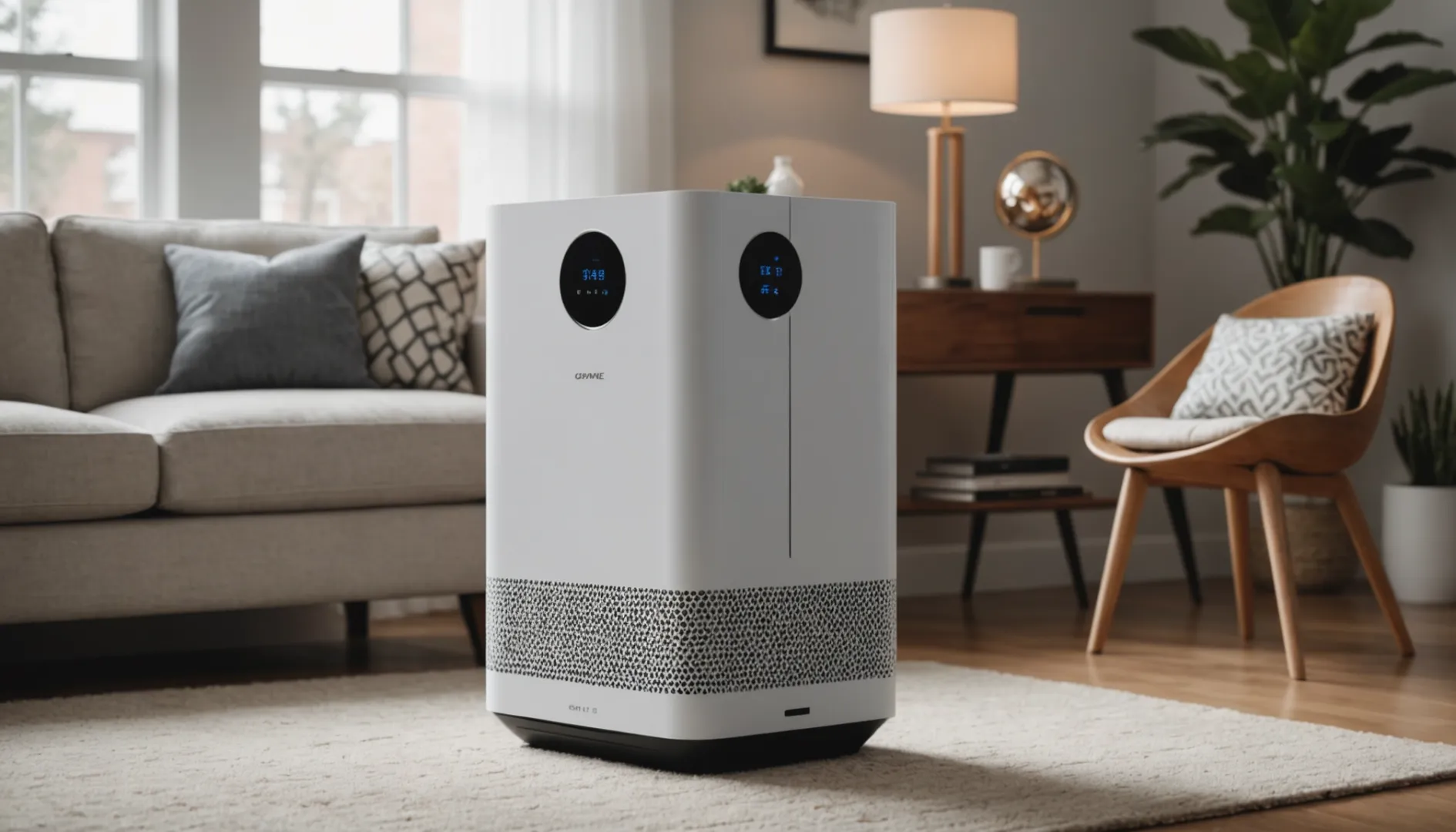
فهم متطلبات السوق
يُمكّن التخصيص الشركات المصنعة لأجهزة تنقية الهواء من تلبية احتياجات قطاعات السوق المتنوعة، بما في ذلك القطاعات السكنية والتجارية والطبية. على سبيل المثال، قد يعطي جهاز تنقية الهواء السكني الأولوية للجماليات والتشغيل الهادئ، بينما يركز الجهاز الطبي على أقصى قدر من كفاءة الترشيح. من خلال تصميم المنتجات وفقًا لهذه المتطلبات المميزة، يمكن للمصنعين ضمان تلبية حلولهم لاحتياجات المستهلكين بشكل فعال.
استيعاب التطورات التكنولوجية
تسمح المرونة في التصنيع بدمج التقنيات المتطورة مثل الميزات التي تدعم إنترنت الأشياء، والتي تتيح المراقبة والتحكم عن بُعد. هذا التكيف أمر بالغ الأهمية مع تزايد طلب المستهلكين على حلول أكثر ذكاءً. على سبيل المثال، الشركات المصنعة التي تدمج تقنية إنترنت الأشياء في أجهزة تنقية الهواء3 توفر للمستخدمين القدرة على تتبع جودة الهواء في الوقت الفعلي وضبط الإعدادات عبر الهواتف الذكية.
التكيف مع اللوائح البيئية
تختلف المعايير واللوائح البيئية باختلاف المناطق. ويضمن التخصيص الامتثال للقوانين المحلية، وهو أمر حيوي لدخول السوق والاستدامة. على سبيل المثال، قد تتطلب اللوائح الأكثر صرامة في بعض المناطق استخدام مرشحات أو تقنيات محددة لتلبية متطلبات جودة الهواء المحلية.
تحسين تجربة المستخدم
يمكن للمصنعين الذين يقدمون خيارات التخصيص تحسين تجربة المستخدم بشكل كبير من خلال معالجة التفضيلات الشخصية مثل مستويات الضوضاء أو كفاءة الطاقة. وتسمح الواجهة القابلة للتخصيص للمستهلكين باختيار الأوضاع التي تناسب نمط حياتهم بشكل أفضل، مما يعزز الرضا والولاء للمنتج.
الاستجابة للاتجاهات الناشئة
المرونة في عمليات الإنتاج تعني أيضًا المرونة الكافية للاستجابة للاتجاهات والتقنيات الناشئة. على سبيل المثال، مع ارتفاع الطلب على المنتجات الصديقة للبيئة، فإن المصنعين الذين يمكنهم دمج المواد المستدامة بسرعة في أجهزة التنقية الخاصة بهم سيكون لديهم ميزة تنافسية. فهم والتكيف مع المواد المستدامة في التصنيع4 يمكن أن يؤدي إلى تصميمات منتجات مبتكرة تجذب المستهلكين المهتمين بالبيئة.
من خلال دمج التخصيص والمرونة في عملياتهم، لا يمكن لمصنعي أجهزة تنقية الهواء تلبية الطلبات الحالية فحسب، بل يمكنهم أيضًا توقع الاتجاهات المستقبلية، مما يضمن استمرار ملاءمتها ونجاحها في السوق.
تسمح تقنية إنترنت الأشياء في أجهزة تنقية الهواء بالمراقبة في الوقت الفعلي.صحيح
تمكّن ميزات إنترنت الأشياء المستخدمين من تتبع جودة الهواء وضبط الإعدادات عن بُعد.
يتجاهل التخصيص في أجهزة تنقية الهواء القوانين البيئية المحلية.خطأ
يضمن التخصيص الامتثال للمعايير البيئية الإقليمية المختلفة.
ما الدور الذي تلعبه معايير الجودة والاعتماد في اختيار الشركة المصنعة؟
تُعد معايير الجودة والاعتماد أمرًا بالغ الأهمية في تحديد موثوقية وسلامة الشركة المصنعة.
تضمن معايير الجودة والاعتماد أن تفي الشركات المصنعة بمعايير الصناعة للسلامة والأداء والأثر البيئي. هذه المعايير، مثل الأيزو وتساعد شهادات الاعتماد والتحقق من صحة المختبر من طرف ثالث، المشترين على تحديد المصنعين الجديرين بالثقة والملتزمين بإنتاج منتجات عالية الجودة ومتوافقة. إن إعطاء الأولوية لهذه المعايير في عملية الاختيار يضمن موثوقية المنتج وثقة المستهلك.
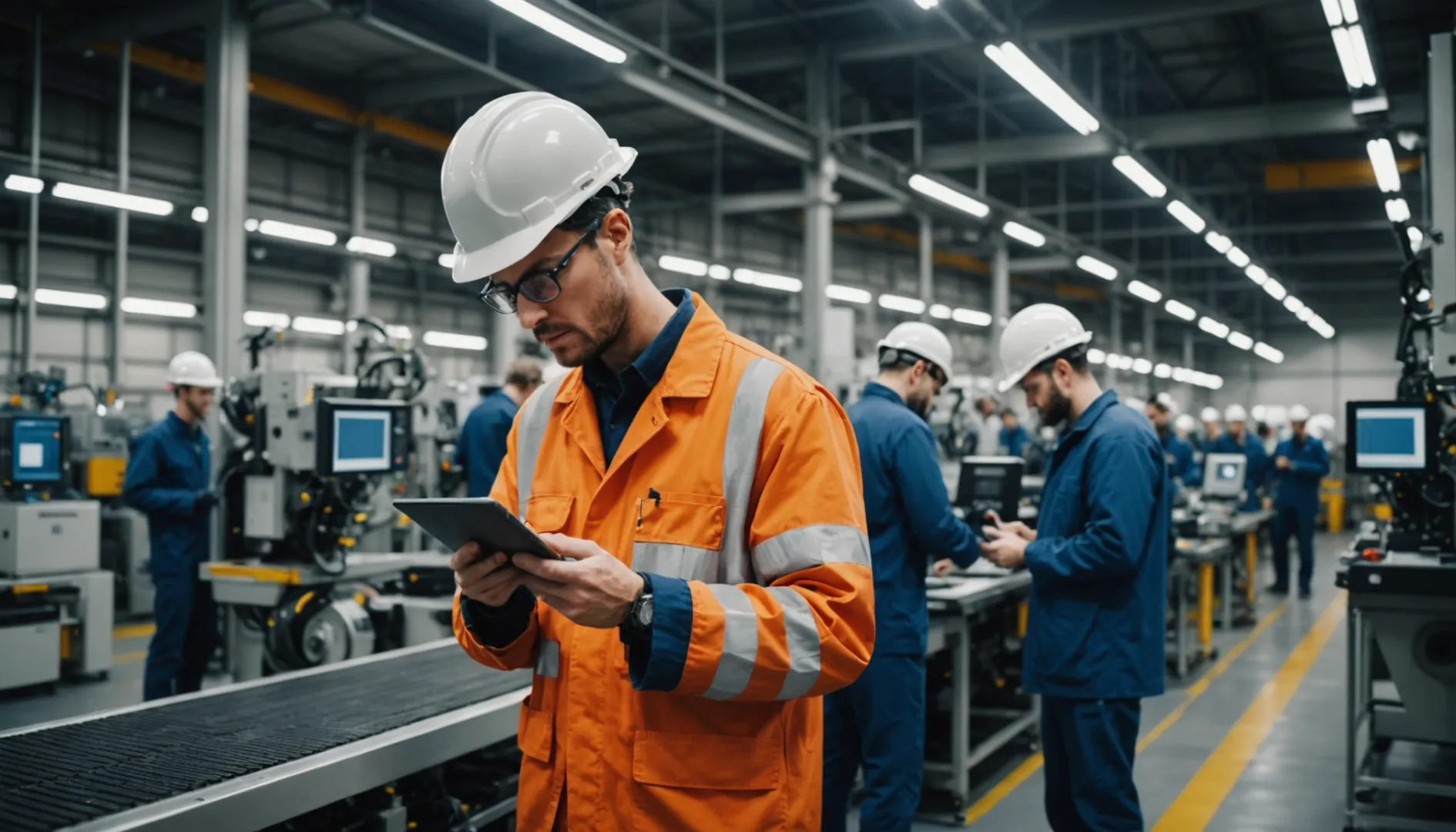
فهم معايير الجودة في التصنيع
تعتبر معايير الجودة أمرًا حيويًا لأنها تضع خط أساس لأداء المنتج وسلامته. يُظهر المصنعون الملتزمون بهذه المعايير التزامهم بالحفاظ على جودة متسقة في جميع عمليات الإنتاج الخاصة بهم. أحد المعايير المعترف بها على نطاق واسع هو معيار الأيزو 9001، والتي تركز على أنظمة إدارة الجودة. ويؤكد الامتثال لهذه المعايير أن الشركة المصنعة تنفذ عمليات فعالة لتحسين الجودة باستمرار.
علاوة على ذلك، فإن معايير مثل الأيزو 140015 التأكيد على الإدارة البيئية، وضمان أن تكون ممارسات التصنيع مستدامة وصديقة للبيئة. وهذا أمر بالغ الأهمية بشكل خاص في صناعات مثل تنقية الهواء، حيث يمثل التأثير البيئي للمنتجات مصدر قلق كبير.
أهمية معايير الاعتماد
تُعد معايير الاعتماد بمثابة مصادقة من طرف ثالث على أن المنتج أو العملية تفي بمتطلبات محددة. وغالبًا ما تكون شرطًا أساسيًا لدخول أسواق أو قطاعات معينة. على سبيل المثال، الشهادات من UL أو إنترتك6 تؤكد أن المنتجات قد تم اختبارها للتأكد من سلامتها وتوافقها مع المعايير التنظيمية. وتطمئن هذه الشهادات المستهلكين بأن المنتجات التي يشترونها آمنة وموثوقة.
في مجال تنقية الهواء، تلعب الشهادات المتعلقة بكفاءة الطاقة والسلامة، مثل تصنيفات Energy Star، دورًا حاسمًا. فهي لا تضمن فقط أن المنتجات تفي باللوائح الحكومية والصناعية ولكنها تساعد أيضًا في تقليل التكاليف التشغيلية والبصمة البيئية.
اختيار المصنعين الملتزمين بالجودة
عند اختيار الشركة المصنّعة، من المهم تقييم سجلها فيما يتعلق بمعايير الجودة والاعتماد. فالشركة المصنعة التي لديها عمليات قوية لمراقبة الجودة من المرجح أن يكون لديها عيوب أقل ومعدلات رضا العملاء أعلى.
تعمل العديد من الشركات المصنعة بشكل وثيق مع مختبرات الطرف الثالث مثل SGS أو TUV للحصول على الشهادات اللازمة بسلاسة. يشير هذا التعاون إلى اتباع نهج استباقي لضمان الجودة والامتثال التنظيمي، والذي يمكن أن يخفف بشكل كبير من المخاطر المرتبطة بفشل المنتج أو عمليات سحب المنتج.
موازنة التكلفة مع ضمان الجودة
على الرغم من أن إعطاء الأولوية للجودة أمر ضروري، إلا أنه من المهم بنفس القدر النظر في الآثار المترتبة على التكلفة. قد يكون لدى المصنعين الذين يقدمون منتجات تلبي معايير الجودة الصارمة تكاليف إنتاج أعلى، مما قد يترجم إلى أسعار أعلى لمنتجاتهم. ومع ذلك، غالبًا ما تفوق الفوائد طويلة الأجل لانخفاض المرتجعات ومطالبات الضمان وتعزيز سمعة العلامة التجارية الوفورات في التكاليف الأولية.
لذلك، عند اختيار الشركة المصنعة، فإن الموازنة بين التكلفة وضمان الجودة أمر أساسي. اختر الشركاء الذين لا يقدمون أسعارًا تنافسية فحسب، بل يحافظون أيضًا على معايير عالية الجودة والامتثال في جميع جوانب عملياتهم.
تضمن آيزو 9001 إدارة الجودة المتسقة.صحيح
تركز الأيزو 9001 على أنظمة إدارة الجودة، مما يضمن اتساق الجودة.
لا أهمية لتصنيفات Energy Star في مجال تنقية الهواء.خطأ
تضمن تصنيفات نجمة الطاقة كفاءة الطاقة، وهو أمر بالغ الأهمية في تنقية الهواء.
كيف يمكن للتواصل الشفاف أن يعزز شراكتك مع الشركة المصنعة؟
التواصل الشفاف هو حجر الزاوية للشراكة الناجحة مع الشركة المصنعة، مما يضمن الثقة المتبادلة والكفاءة.
يعزز التواصل الشفاف شراكات الشركات المصنعة من خلال تعزيز الثقة ومواءمة الأهداف وتقليل سوء الفهم وتسهيل تنفيذ المشروع بشكل أكثر سلاسة.
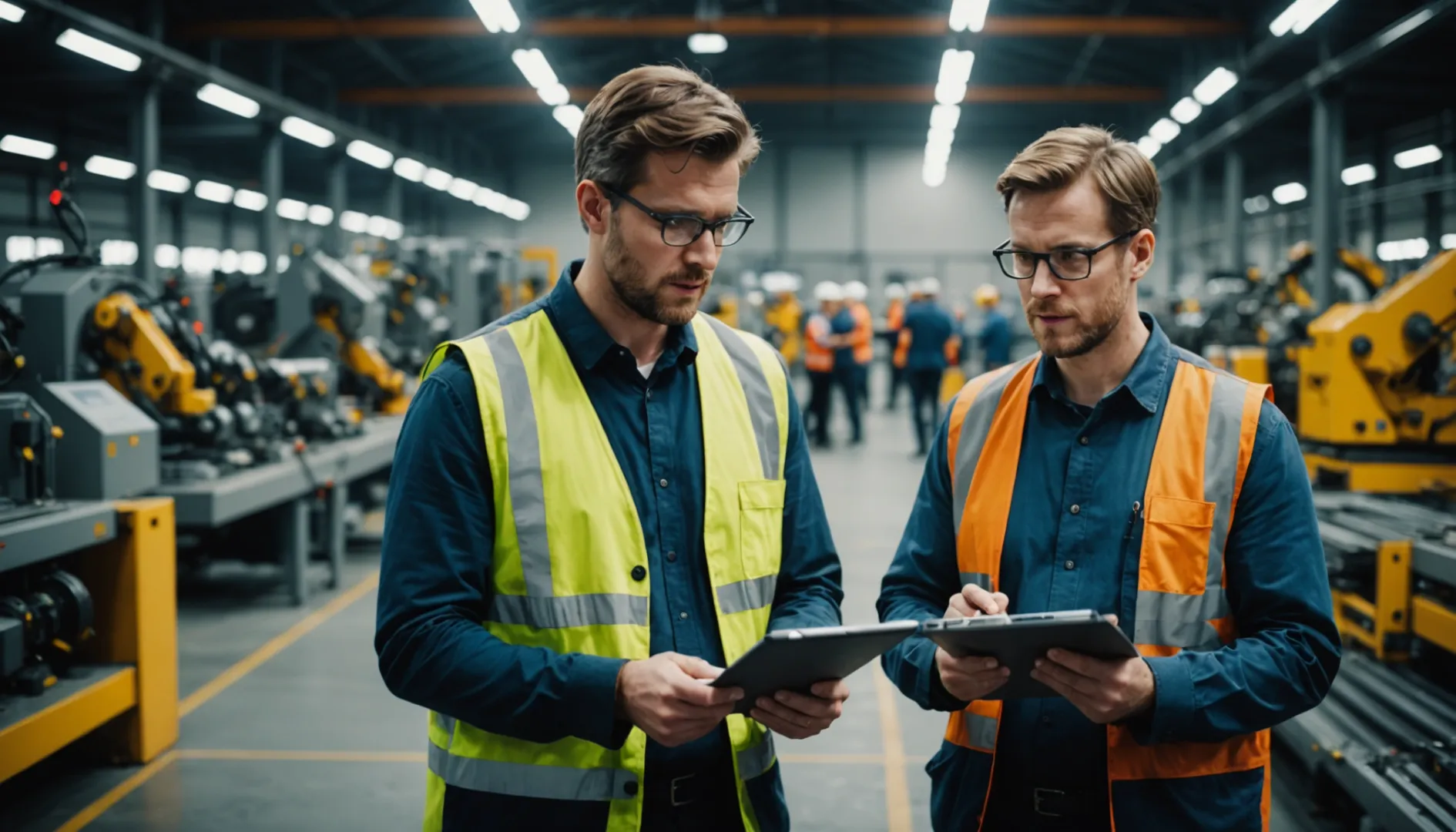
بناء الثقة من خلال الوضوح
إن التواصل الشفاف أمر أساسي في بناء الثقة بينك وبين شريك الشركة المصنعة7. عندما يكون كلا الطرفين واضحين بشأن التوقعات والجداول الزمنية والتحديات المحتملة، فإن ذلك يضع أساسًا لشراكة موثوقة. لا تُبنى الثقة على جودة المنتج فحسب، بل أيضًا على الصدق والانفتاح في كل تفاعل.
على سبيل المثال، تتيح لك الشركة المصنعة التي تشارك الجداول الزمنية للإنتاج والتأخيرات المحتملة بشكل علني التخطيط بشكل أفضل وإدارة توقعات عملائك بشكل فعال. ويضمن هذا المستوى من الشفافية عدم وجود مفاجآت، وأن تكون جميع الأطراف على نفس الصفحة منذ البداية.
مواءمة الأهداف والتوقعات
عندما يكون لديك خط اتصال واضح مع الشركة المصنّعة، تصبح مواءمة الأهداف أسهل بكثير. يمكن لكلا الطرفين وضع أهداف واقعية وفهم نطاق العمل المطلوب لتحقيقها. تقلل هذه المواءمة من خطر خروج المشروع عن مساره بسبب عدم تطابق التوقعات أو سوء التواصل.
ضع في اعتبارك سيناريو تحتاج فيه إلى جهاز تنقية الهواء المخصص8 الحل. من خلال مناقشة متطلباتك بشفافية، يمكن للشركة المصنعة تقديم رؤى حول الجدوى والتكاليف المحتملة والجداول الزمنية، مما يساعدك على اتخاذ قرارات مستنيرة.
الحد من حالات سوء الفهم والأخطاء
غالبًا ما يكون سوء الفهم هو السبب الجذري لتأخير المشروع وزيادة التكاليف. يقلل التواصل الشفاف من هذه المخاطر من خلال ضمان فهم جميع التعليمات والتوقعات بوضوح. يمكن أن تساعد التحديثات المنتظمة وحلقات التغذية الراجعة في تحديد المشاكل المحتملة في وقت مبكر، مما يسمح باتخاذ إجراءات تصحيحية قبل أن تصبح المشاكل الصغيرة انتكاسات كبيرة.
من الممارسات المفيدة تنفيذ عمليات مراجعة أو تحديثات منتظمة عبر مكالمات الفيديو أو التقارير المكتوبة. تتيح هذه الجلسات للطرفين توضيح أي شكوك على الفور وإبقاء المشروع على المسار الصحيح.
تسهيل تنفيذ المشروع بشكل أكثر سلاسة
وأخيرًا، يلعب التواصل الشفاف دورًا حاسمًا في تسهيل تنفيذ المشروع بشكل أكثر سلاسة. فعندما يحافظ الطرفان على حوار مفتوح، فإن ذلك يعزز جوًا تعاونيًا يمكن فيه تبادل الأفكار بحرية وتنفيذ التحسينات بسرعة.
هذا النهج مفيد بشكل خاص في الصناعات الديناميكية حيث يمكن أن تتغير متطلبات السوق بسرعة. تسمح لك العلاقة الشفافة مع الشركة المصنعة بالتكيف بسرعة مع التغييرات دون المساس بجودة المنتج أو مواعيد التسليم.
في الختام، لا يقتصر التواصل الشفاف على مجرد تبادل المعلومات؛ بل يتعلق بتعزيز بيئة تعاونية تقود إلى النجاح. من خلال إعطاء الأولوية للوضوح والانفتاح، فإنك لا تعزز شراكتك مع الشركة المصنعة فحسب، بل تعزز أيضًا جودة المنتج النهائي الذي يتم تسليمه لعملائك.
التواصل الشفاف يقلل من التأخير في المشروع.صحيح
يقلل من سوء الفهم، مما يسمح بحل المشكلات بشكل استباقي.
ليس للأهداف غير المتوائمة أي تأثير على الشراكات.خطأ
يمكن أن تؤدي الأهداف غير المتوافقة إلى عرقلة المشاريع بسبب اختلاف التوقعات.
الخاتمة
فكّر في هذه الأفكار وأنت تختار الشركة المصنعة التي تتماشى مع احتياجات جودة الهواء لديك، مما يضمن لك مساحة معيشة أو عمل أكثر صحة.
-
اكتشف كيف تعمل فلاتر HEPA على تحسين جودة الهواء في المنزل..: تقوم فلاتر HEPA، التي ترمز إلى الهواء عالي الكفاءة في الجسيمات، بحبس الجسيمات الصغيرة الضارة، مثل حبوب اللقاح ووبر الحيوانات الأليفة والدخان وعث الغبار عن طريق دفع الهواء ... ↩
-
اكتشف سبب تفضيل فلاتر الأشعة فوق البنفسجية-ج في أماكن الرعاية الصحية: تُستخدم هذه التقنية في تنقية المياه وتنقية الهواء وأقنعة التنفس والمرافق الطبية وغيرها. تقتل أكثر من 99.9% من الميكروبات المنقولة بالهواء عن طريق ... ↩
-
اكتشف كيف تعمل تقنية إنترنت الأشياء على تحسين وظائف أجهزة تنقية الهواء..: بفضل ميزات الجدولة الذكية والتشغيل الآلي، تعمل أجهزة تنقية الهواء التي تدعم إنترنت الأشياء على تحسين استخدام الطاقة، مما يقلل من استهلاك الكهرباء ... ↩
-
تعرّف على كيفية دمج المواد الصديقة للبيئة في تصميم المنتجات: أجهزة تنقية الهواء من ليك إير مصنوعة من أكثر من 60% من المواد المعاد تدويرها. أجهزة تنقية الهواء المنزلية الشائعة مصنوعة في الغالب من البلاستيك. ↩
-
اكتشف كيف تعزز شهادة الأيزو 14001 المسؤولية البيئية ..: اكتشف كيف يمكن لشهادة الأيزو 14001 أن تفيد أعمالك في مجال التصنيع من خلال توفير التكاليف وتحسين عمليات إدارة النفايات وزيادة كفاءة ... ↩
-
تعرف لماذا تضمن شهادات UL أو Intertek سلامة المنتج..: Intertek هي خدمة اختبار مختبرية تعمل مع المواد عبر مجموعة واسعة من الصناعات مثل: المواد الغذائية والكيماويات ومستحضرات التجميل و ... ↩
-
تعلم كيف تعزز الشفافية الثقة في علاقات الشركة المصنعة..: يتم اكتساب الثقة من خلال قول ما سنفعله، ومشاركة الأسباب، وتقديم ما قلنا إننا سنفعله - بشفافية ... ↩
-
افهم سبب أهمية مواءمة الأهداف في شراكات التصنيع..: يساعد الوصول إلى نفس الأهداف على تلطيف الأجواء في العمل وزيادة مشاركة الموظفين وتقليل عدد النزاعات. ومع ذلك، فإن معظم ... ↩


